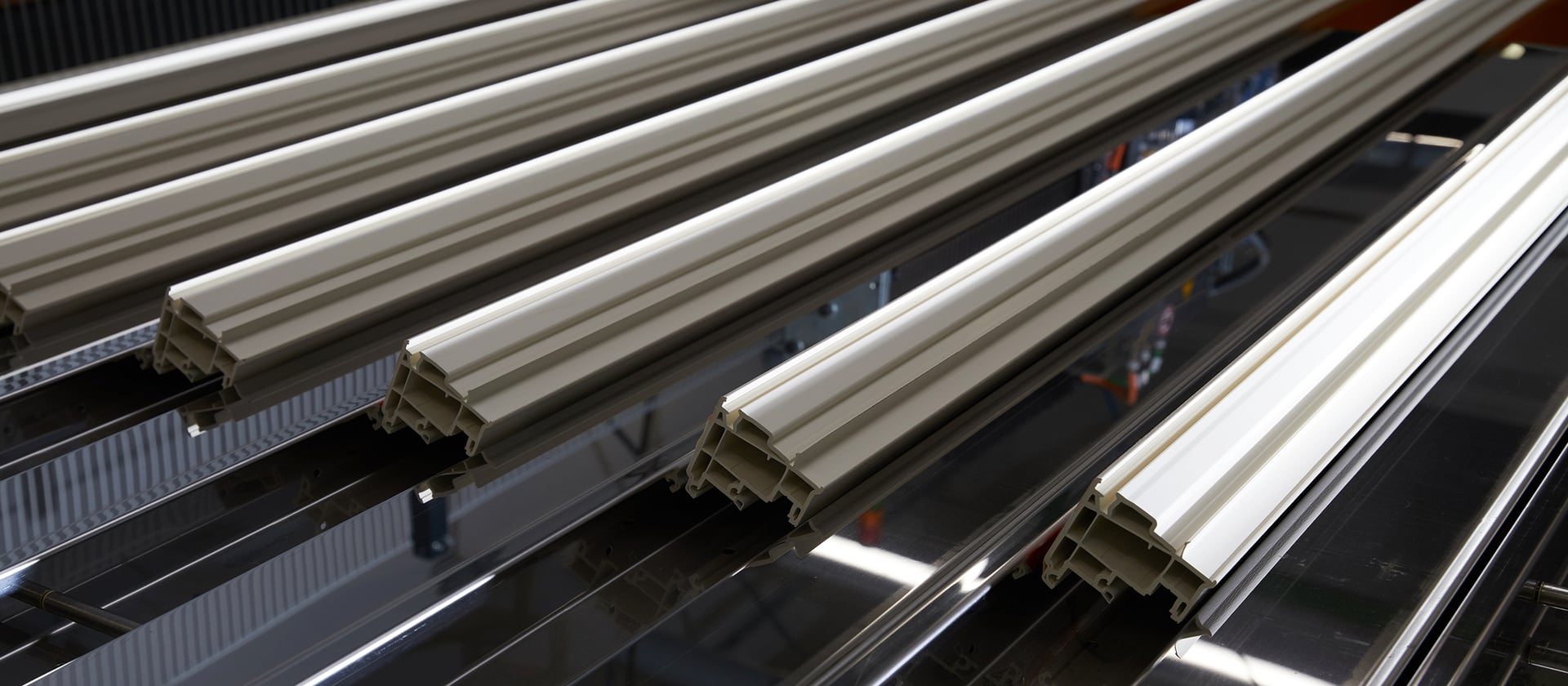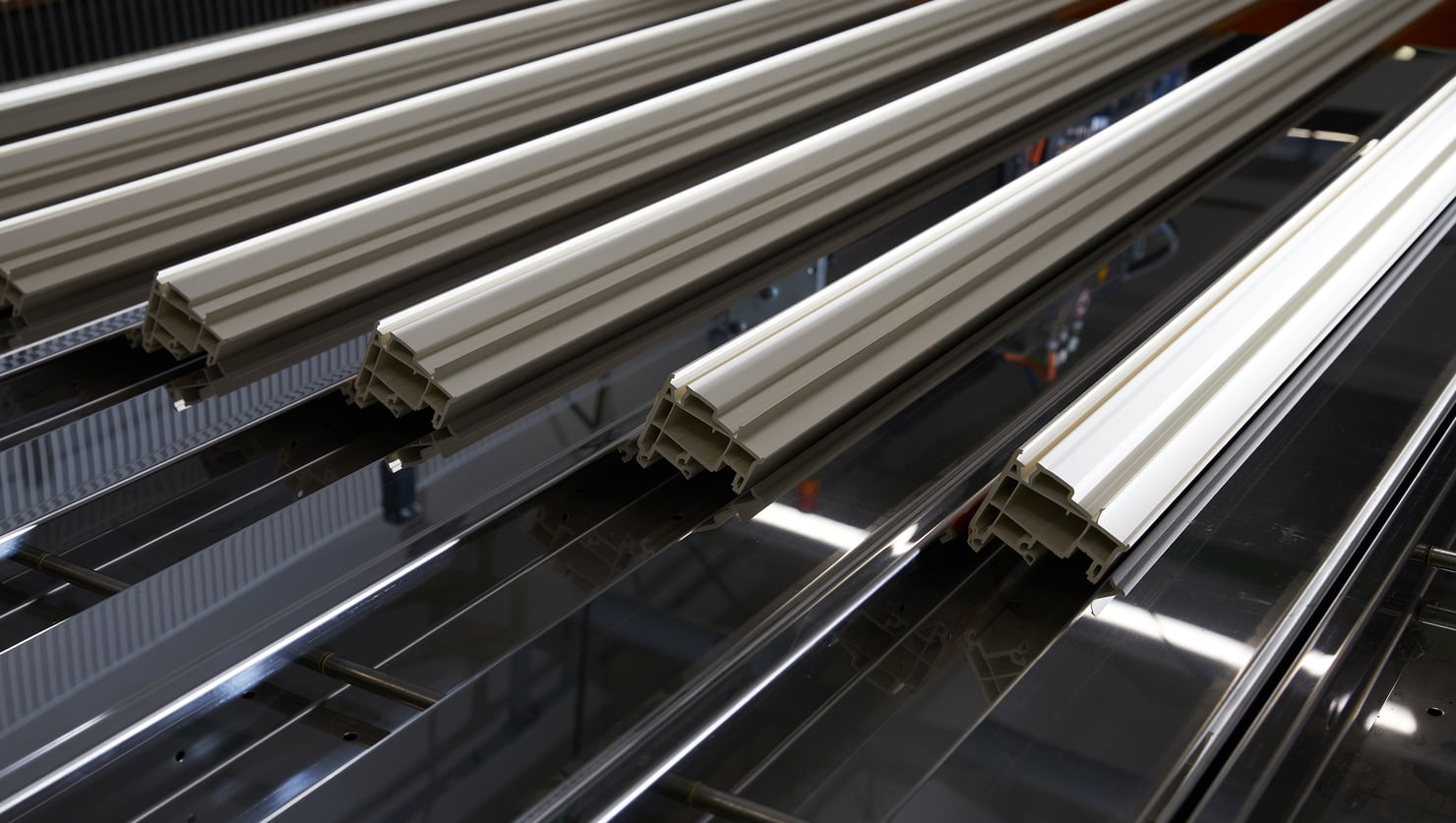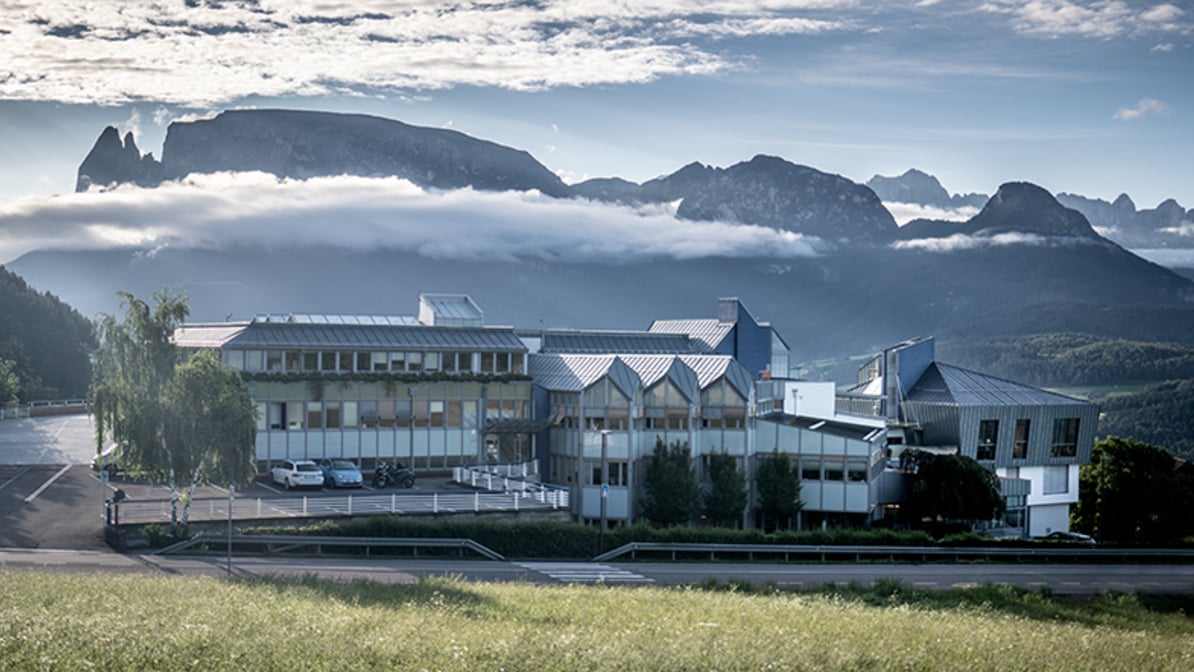
“UPVC is the ideal material for windows.”
Franz Gufler: insulation
Windows have many functions. They provide us with light and fresh air. They keep out heat and cold, while preventing wind, rain and noise from getting in. All of this is purely mechanical, maintenance-free and will last for decades. We may not notice them, but windows are highly complex construction elements. Product developer Franz Gufler knows why Finstral windows meet every technical requirement and are therefore among the best when it comes to insulation.
How has a window have to be designed to ensure the best possible insulation?Franz Gufler: Three factors determine the insulation value of a window – frame, glass and installation. At Finstral we always use uPVC for the frame on principle. Unlike aluminium, for example, it is not conductive, nor will it weather. And it ensures a tight seal for windows because the corners of the frame can be welded. UPVC is simply the ideal material for windows.
And what role does the glass play?Insulation glass usually consists of two or three panes, a spacer and a filling of argon gas in the gap between the panes. The difference in quality depends upon the quality of the ingredients: truly modern glass coatings will not only insulate, they also permit significantly more daylight to enter. And truly good spacers must be heat-insulating and corner- welded. At Finstral, we always manufacture our insulation glass ourselves and in principle only use the best materials available on the market.
There is still the matter of installation…That too is immensely important. Around one third of the insulation performance of a window depends upon its correct installation. That is why we place so much emphasis on trained installers and, together with the Institut für Fenstertechnik (ift) in Rosenheim, we have launched the most rigorous qualification programme in Europe.
How can Finstral windows offer such good insulation values?Because we do everything ourselves, from development through to production and assembly, we can offer a higher quality standard. What makes our windows special, then, is the triply unique quality of frame, glass and installation.
How can you increase the thermal insulation?Thermal insulation can be increased by thicker frame profiles and triple glazing. This is recommended wherever the exterior and interior temperatures differ greatly. In cold regions, where it should be warm indoors, or in very hot areas with air-conditioned interiors. Cooling a room by just one degree consumes three times as much energy as heating it one more degree. And this energy is not dissipated through the window.
When is special heat protection glazing useful?The need for double or triple glazing depends upon which climate region you live in and whether the room is air-conditioned. In the case of air-conditioning, I always recommend the maximum insulation that triple glazing will provide. In addition, in Mediterranean regions the air-conditioning period is longer than the heating period. In this context, it is also important that our triple insulation glazing is just as transparent as a double glazing.
How can I calculate if and when my new windows will pay for themselves?New windows always pay for themselves. They are the easiest element to replace in a building and bring with them a whole host of advantages. Let’s start with insulation: it is measured with the heat transfer coefficient, namely the U-value. If this is improved by 1.0, this will save about 100 kWh of heating (equivalent to approx. 10 m³ of natural gas) per square metre of window area per year. This is a rough guideline – our advisers will be happy to provide an exact calculation. And they can also demonstrate that new windows provide better protection against burglary, bring more light into the house, are easy to maintain and almost maintenance-free. And they reduce noise. The first thing our customers notice after replacing their windows is that it is quieter.
What is the point of sound insulation?Constant noise makes us ill, so sound insulation should not be underestimated. From a technical point of view, there are two things involved: on the one hand, all joints must be absolutely tight. We do this particularly well at Finstral because we permanently co-extrude our gaskets onto the frame profiles in stable form. We bond the glass to the frame rather than using setting blocks. And the numerous locking points between the sash and the window frame ensure a high contact pressure. On the other, an asymmetrical structure and large gaps between the panes will reduce noise levels. Taking all this into account, a Finstral window can absorb up to 47 dB of sound.
How has a window have to be designed to ensure the best possible insulation?Franz Gufler: Three factors determine the insulation value of a window – frame, glass and installation. At Finstral we always use uPVC for the frame on principle. Unlike aluminium, for example, it is not conductive, nor will it weather. And it ensures a tight seal for windows because the corners of the frame can be welded. UPVC is simply the ideal material for windows.
And what role does the glass play?Insulation glass usually consists of two or three panes, a spacer and a filling of argon gas in the gap between the panes. The difference in quality depends upon the quality of the ingredients: truly modern glass coatings will not only insulate, they also permit significantly more daylight to enter. And truly good spacers must be heat-insulating and corner- welded. At Finstral, we always manufacture our insulation glass ourselves and in principle only use the best materials available on the market.
There is still the matter of installation…That too is immensely important. Around one third of the insulation performance of a window depends upon its correct installation. That is why we place so much emphasis on trained installers and, together with the Institut für Fenstertechnik (ift) in Rosenheim, we have launched the most rigorous qualification programme in Europe.
How can Finstral windows offer such good insulation values?Because we do everything ourselves, from development through to production and assembly, we can offer a higher quality standard. What makes our windows special, then, is the triply unique quality of frame, glass and installation.
How can you increase the thermal insulation?Thermal insulation can be increased by thicker frame profiles and triple glazing. This is recommended wherever the exterior and interior temperatures differ greatly. In cold regions, where it should be warm indoors, or in very hot areas with air-conditioned interiors. Cooling a room by just one degree consumes three times as much energy as heating it one more degree. And this energy is not dissipated through the window.
When is special heat protection glazing useful?The need for double or triple glazing depends upon which climate region you live in and whether the room is air-conditioned. In the case of air-conditioning, I always recommend the maximum insulation that triple glazing will provide. In addition, in Mediterranean regions the air-conditioning period is longer than the heating period. In this context, it is also important that our triple insulation glazing is just as transparent as a double glazing.
How can I calculate if and when my new windows will pay for themselves?New windows always pay for themselves. They are the easiest element to replace in a building and bring with them a whole host of advantages. Let’s start with insulation: it is measured with the heat transfer coefficient, namely the U-value. If this is improved by 1.0, this will save about 100 kWh of heating (equivalent to approx. 10 m³ of natural gas) per square metre of window area per year. This is a rough guideline – our advisers will be happy to provide an exact calculation. And they can also demonstrate that new windows provide better protection against burglary, bring more light into the house, are easy to maintain and almost maintenance-free. And they reduce noise. The first thing our customers notice after replacing their windows is that it is quieter.
What is the point of sound insulation?Constant noise makes us ill, so sound insulation should not be underestimated. From a technical point of view, there are two things involved: on the one hand, all joints must be absolutely tight. We do this particularly well at Finstral because we permanently co-extrude our gaskets onto the frame profiles in stable form. We bond the glass to the frame rather than using setting blocks. And the numerous locking points between the sash and the window frame ensure a high contact pressure. On the other, an asymmetrical structure and large gaps between the panes will reduce noise levels. Taking all this into account, a Finstral window can absorb up to 47 dB of sound.

20 percent of heating energy is lost through poorly insulated windows. Well-insulated windows will thus significantly reduce heating costs.

Franz Gufler has been working on Finstral window systems for 15 years. As head of product development, he has already launched several innovations.
Still want more?
See here for further interesting reading matter.


Department of Gestaltungslehre and Design – Technical University of Vienna.


The South-Tyrolean family business is among the biggest window suppliers in Europe.


